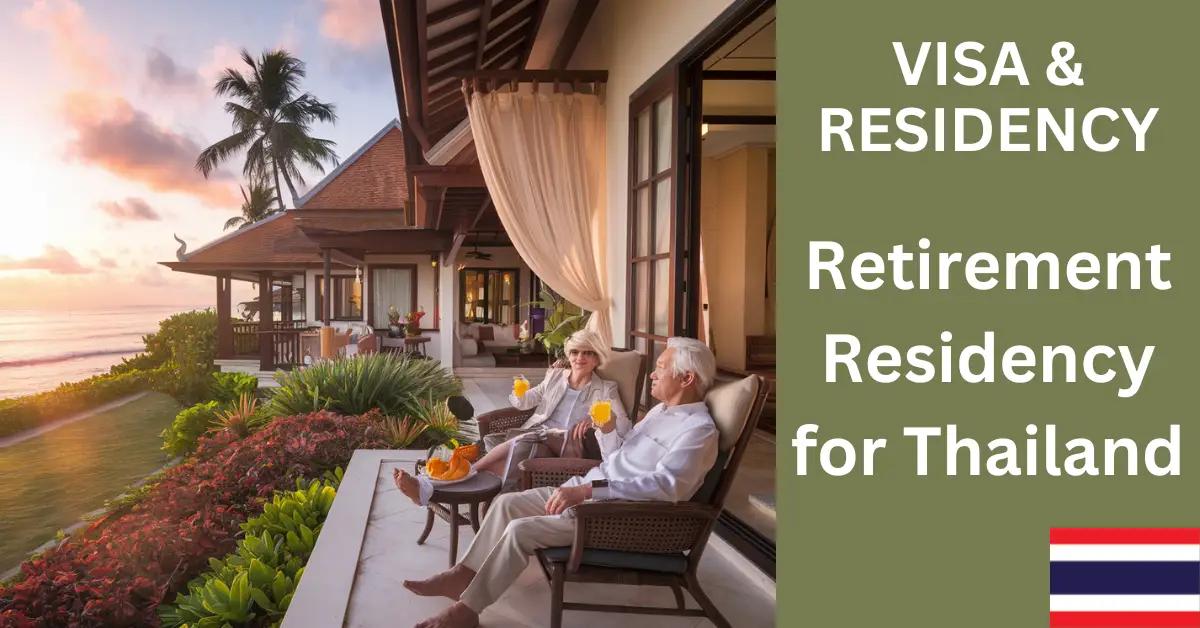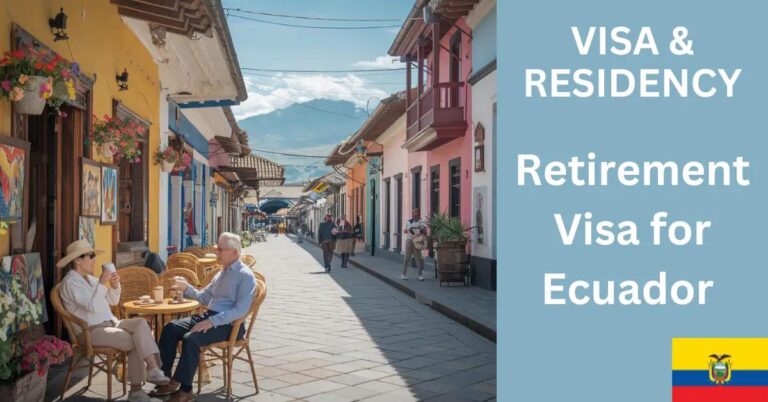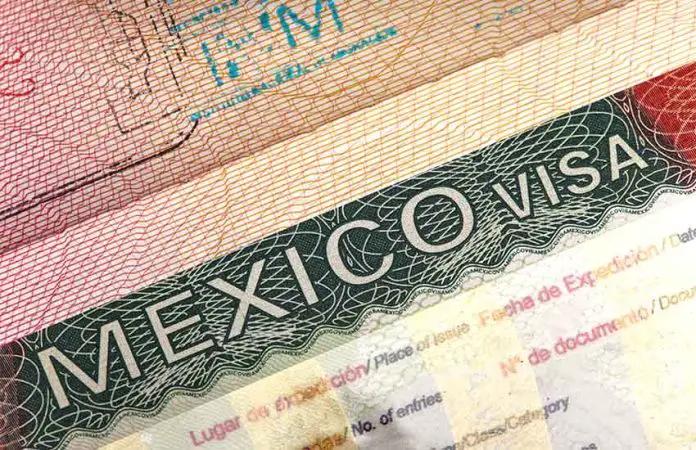TL;DR:
- Visa Types: Non-Immigrant O-A (50+) & O-X (up to 10 years).
- Financial Requirement: 800,000 baht in a bank or 65,000 baht/month.
- Application Steps: Apply at Thai embassy; require passport, income proof, health checks.
- Living Benefits: Low cost, vibrant culture, warm climate.
- Location Choices: Chiang Mai (low costs, expat-friendly), Phuket (beach, higher costs), urban vs. rural.
- Cost of Living: Varies; 25,000-40,000 baht/month in smaller towns.
- Healthcare Options: Public (cheaper, possible delays) vs. private (more expensive, English-speaking, Western-standard).
- Integration Tips: Learn Thai basics, join expat communities, respect local culture.
- American Retirees: Can retire with a Thai visa.
Are you dreaming of warm beaches and vibrant sunsets for your golden years? Consider Thailand! With its friendly locals and affordable living, it's a top choice for retirees. But, is Thailand truly worth it for retirement? Let’s dive into the nitty-gritty of retirement visas, costs, and healthcare. I’ll guide you through the steps to make this transition smooth and exciting, just like a new adventure should be!
What are the Retirement Visa Requirements in Thailand?
Living in Thailand for retirement has its perks. First, you need a Thai retirement visa. There are two main types: the Non-Immigrant O-A and the O-X visa. The O-A visa is for those above 50 years. The O-X visa is similar but allows for a longer stay of up to 10 years.
A big part of the process is understanding the Thailand Retirement Visa requirements for 2024. You must prove you can support yourself financially. How much money do you need for a retirement visa in Thailand? You need at least 800,000 baht in a Thai bank account or a monthly income of 65,000 baht. This ensures retirees can live comfortably without working.
Applying for a retirement visa in Thailand starts at a Thai embassy. First, gather essential documents. You'll need your passport, proof of income, and health checks. Submit these with your application form. Remember, everything must meet Thai standards. Always check for updates—visa rules change often.
Once you secure the retirement visa, you unlock many benefits. Enjoy year-round warm weather and a low cost of living compared to many Western countries. Thailand also offers vibrant culture and delicious food. You can travel and explore beautiful beaches, cities, and mountains easily.
Keep an eye on changes in retirement visa rules come 2024. They can affect both new applications and renewals. Monitoring these changes helps avoid issues when planning your retirement.
Finally, using a local advisor can smooth the application process. They can explain intricate details and assist with documents. This help can be vital if you're not fluent in Thai.
Thailand is a popular spot for retirees due to its friendly people and unique lifestyle. Knowing the retirement visa requirements helps make your transition smooth and exciting.
How Do You Choose the Best Cities for Retirees in Thailand?
When choosing a city to retire in Thailand, consider what matters most to you. Some cities offer calm and peace, while others are full of excitement.
Chiang Mai – An Expat Haven
Chiang Mai is a top choice for retirees thanks to its friendly atmosphere. It's a city where you’ll find many fellow expats enjoying life. Here, the cost of living is low, and there's a rich cultural scene. The city is surrounded by mountains, offering beautiful views and a mild climate. If you enjoy close-knit communities and local traditions, Chiang Mai might be perfect.
Phuket – A Beach Lover's Paradise
For those who dream of sandy beaches and ocean views, Phuket is ideal. Many retirees love the island lifestyle with its lively markets and fresh seafood. It's known for world-class facilities and a vibrant expat community. However, living on an island can mean higher costs compared to the mainland.
Urban vs. Rural – Which Suits You?
Consider whether city buzz or rural calm calls to you. Urban areas like Bangkok offer many conveniences and entertainment options. However, they might feel crowded. In contrast, rural areas provide a quieter, more relaxed atmosphere.
Criteria for Choosing an Area
Think about what is important for your daily life. Access to healthcare, transportation, safety, and community are key factors. These elements can greatly affect your happiness in a new place.
Can Americans Retire in Thailand?
Yes, Americans can retire in Thailand. You will need a Retirement Visa to live there legally. The process involves meeting financial criteria to show you can support yourself.
Retiring in Thailand as a US citizen is possible and can be rewarding. Choose the city that fits your lifestyle for a happy retirement.
What Are the Costs of Living for Retirees in Thailand?
To gain residency in Thailand, you need at least 800,000 Thai Baht in a Thai bank. This amount shows you can support yourself. It covers basic living expenses, which many find affordable compared to Western countries.
For retirees, the cost of living in Thailand can differ based on lifestyle and location. In smaller towns, you might spend about 25,000 to 40,000 Baht monthly. This budget covers rent, food, utilities, and transport. In larger cities like Bangkok, costs can rise. Rent alone may reach 20,000 Baht or more. These are basic estimates and can vary widely based on individual needs.
Your lifestyle choices greatly affect your expenses. An affordable lifestyle means local groceries, street food, and public transport. Premium living adds fine dining, personal vehicles, and upscale housing. Many expats find Thailand a cost-effective place to live. Yet, some prefer a more luxurious way of life, raising their costs.
Here are some tips to save money. Choose to eat where the locals do; it's cheaper and authentic. Search for apartments outside main tourist areas to lower rent. Always compare prices in markets and shop around for deals. These habits can lead to big savings over time.
The influence of location is also key. Coastal areas like Phuket may have higher dining and housing costs. In contrast, cities like Chiang Mai offer a more relaxed and affordable vibe.
When you look at economic comparisons, Thailand often stands out. It is more affordable than many Western expat hotspots. This balance of cost and quality makes it attractive to retirees. Many choose it for a mix of culture, climate, and lower expenses.
What Healthcare Options Are Available to Retirees in Thailand?
Retirees in Thailand have access to diverse healthcare options. The country offers both public and private healthcare. This means you can find care that fits your budget and needs. Public hospitals cost less but may have long wait times and language barriers. Private hospitals offer faster service and staff who speak English.
Cost and Quality of Healthcare
In Thailand, healthcare costs vary. Public care is cheaper than private. The quality at private hospitals can match Western standards. Even with private care, the costs are often less than what you would pay back home. Many retirees find this appealing, especially for long-term care.
Health Insurance for Retirees
As a retiree, you have health insurance choices. You can buy plans from local or international providers. Local plans might cost less but may not cover treatment outside Thailand. International plans can offer more coverage but might be pricier. Many expats get international coverage to ensure full peace of mind.
Finding Reliable Healthcare Providers
Finding healthcare providers in Thailand is often easy. Major cities have many options with English-speaking staff. You can ask other expats and local groups to find trusted doctors or specialists. It's a good idea to visit a few places to see where you feel most comfortable.
Common Health Concerns and Preventive Tips
Retirees might face health challenges like allergies or tropical diseases. Thailand's warm climate and busy cities can also affect your health. To stay safe, consider vaccinations before you move. It's wise to keep active and maintain a healthy diet. Regular check-ups can help you detect any changes in your health early.
By understanding these healthcare options, you can make informed choices while enjoying your retirement in Thailand.
How Can Retirees Effectively Integrate into Life in Thailand?
Moving to Thailand for retirement is a big change. The first question many ask is, "What adjustments will I need?" Life here can be very different. Picture this: busy markets, spicy food, and warm smiles. The pace is laid-back, which many find relaxing.
Joining an expat community helps. It’s easy to find friends who understand both cultures. Look for local meetups or clubs. People share advice, stories, and support. It’s like having a second family abroad.
Understanding Thai culture is key. The people are welcoming, but they appreciate respect for their traditions. Learn a few Thai words. A simple "Sawadee" for hello goes a long way. Respect the royal family and dress modestly in temples.
What about real-life stories from retirees in Thailand? Some miss home but value local friendships. Many enjoy new hobbies like cooking Thai dishes or learning Thai massage. Others find joy in the country's natural beauty.
Finally, how can you engage in cultural exchanges and social activities? Try attending local festivals or taking Thai language classes. Visit a community center to join art or dance classes. Come with an open heart and mind.
Integrating into Thai life needs effort, but it pays off. You blend in, yet keep your roots. If ever unsure, the community is your guide. Their experiences light the path to becoming part of Thai life.
Read more on experiencing life in Thailand.
Conclusion
In conclusion, planning to retire in Thailand requires understanding visas, costs, and lifestyle. We've discussed visa types, financial needs, and Thailand's application process. Knowing living expenses and healthcare options helps you plan better. Selecting where to live and experiencing local culture is part of the journey. Retirement in Thailand offers rich culture and good living standards. Remember, preparation smooths your transition and enriches your new life.







